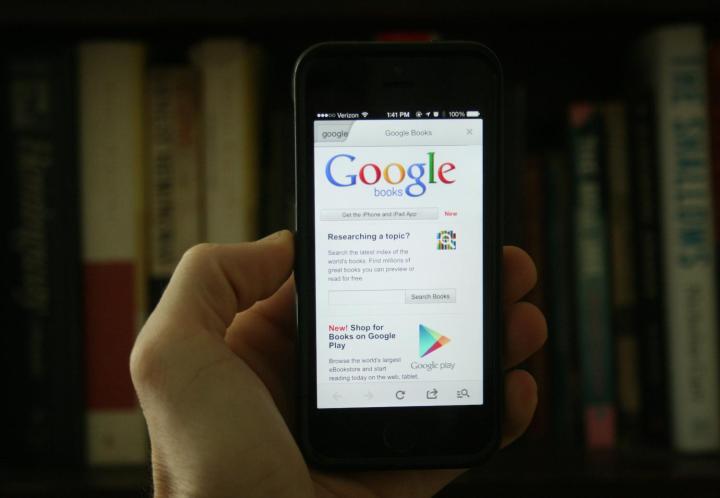
After eight years of battling in court, Google has won the right to scan books and publish them online – for now.
U.S. Circuit Judge Denny Chin issued a decision on Thursday in New York, saying that Google Books, which provides Web users with access to previews and full versions of more than 20 million titles, is “highly transformative” due to the way it was implemented, and clearly falls into the copyright law’s exception for “fair use” because Google only provides “snippets” of copyrighted works for which it does not have publishing rights.
Chin went on to say that “Google Books provides significant public benefits” and would serve as “an essential research tool.” Chin added that Google Books “advances the progress of the arts and sciences, while maintaining respectful consideration for the rights of authors and other creative individuals, and without adversely impacting the rights of copyright holders.”
Google, of course, agrees.
“This has been a long road and we are absolutely delighted with today’s judgement,” a Google spokesperson said in a statement. “As we have long said Google Books is in compliance with copyright law and acts like a card catalog for the digital age – giving users the ability to find books to buy or borrow.”
The law does place some limitations on Google Books. For example, Google is not permitted to sell advertising on, or charge access to, Google Books. However, third parties may use the scanned book data for free without fear of falling on the wrong side of law.
Librarians and scholars view the decision as a major win, and, as GigaOm reports, their support in the case likely pushed the verdict in Google’s favor. The pro-copyright Author’s Guild, which brought the suit against Google, views the decision as a blow to writers and publishers.
“We disagree with and are disappointed by the court’s decision today. This case presents a fundamental challenge to copyright that merits review by a higher court,” said Author’s Guild Executive Director Paul Aiken in a statement. “Google made unauthorized digital editions of nearly all of the world’s valuable copyright-protected literature and profits from displaying those works. In our view, such mass digitization and exploitation far exceeds the bounds of the fair use defense.”
The Author’s Guild will likely appeal this decision. But for now, there are 20 million books out there just waiting for you to check out online.
Read Chin’s full decision below:
Google Books ruling on fair use.pdf by jeff_roberts881
[Image via pling/Shutterstock]
Editors' Recommendations
- Google to ax its Shopping app in favor of web search
- Former Google exec says the tech giant doesn’t prioritize human rights


